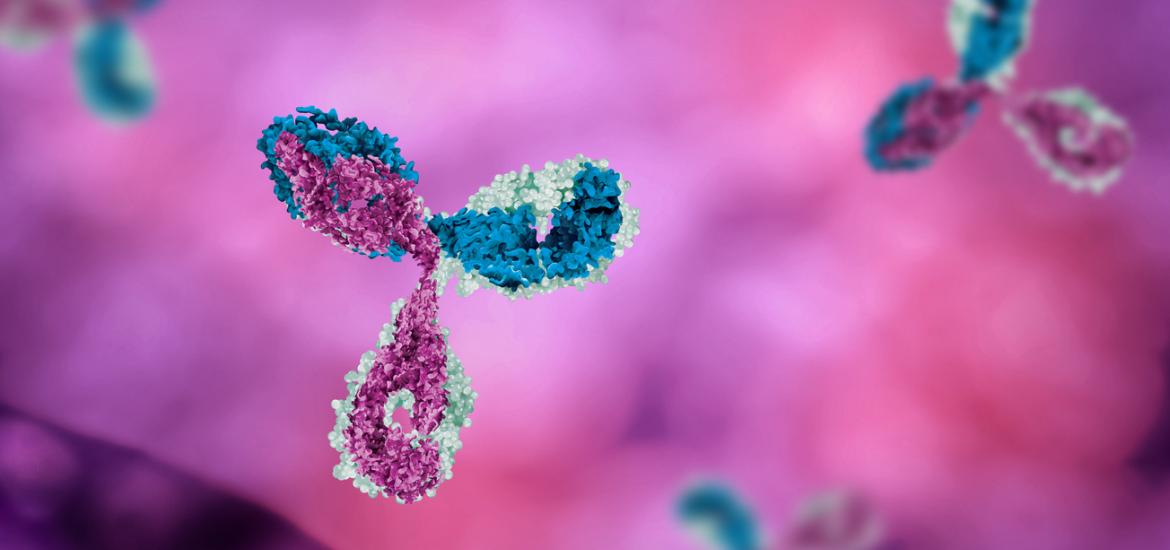
CCR8 expectations
Blockade of CCR8 has quietly emerged as a hot oncology target, especially for anti-PD-(L)1 MAb combinations.
Blockade of CCR8 has quietly emerged as a hot oncology target, especially for anti-PD-(L)1 MAb combinations.

When last year Coherus acquired the distressed biotech Surface Oncology for $65m in stock few paid attention to the anti-CCR8 MAb SRF114, which came with the deal. Now a flurry of clinical activity in CCR8 antagonism, including the big hitters Roche and Amgen, suggests that Coherus might have been on to something.
Roche’s involvement has only recently been disclosed; though the company’s RO7502175 was known to have entered human trials in late 2022 it was only last month that a paper in the British Journal of Pharmacology confirmed that this molecule was an anti-CCR8 MAb. OncologyPipeline reveals that 4,179 patients are now being recruited into trials of CCR8 blockers – a staggering amount given how little human data are published on this mechanism.
One of the few available clinical datasets is on LaNova Medicines’ LM-108, presented at last year’s ESMO-IO conference. This concerned 24 patients, and showed partial responses in one patient on monotherapy and in another given a Keytruda combo.
Though there were no dose-limiting toxicities that study has been marked “terminated” on clinicaltrials.gov, and LaNova has started two other phase 1/2 tests, including combinations with Coherus’s Loqtorzi. LaNova is perhaps best known for licensing deals with Turning Point (now owned by Bristol Myers Squibb) and AstraZeneca, though for now LM-108 remains a wholly owned asset.
From 185 to 665
It was actually Bristol that became the first big oncology player in the clinic with an anti-CCR8 MAb, when in May 2021 it took BMS-986340 into a phase 1/2 solid tumour study in combination with Opdivo or docetaxel.
One measure of this approach’s importance is that this trial’s target recruitment has been increased massively – from 185 patients when it started to 665 now. However, no data from this study have yet been revealed, and the only publicly available backing for BMS-986340 is preclinical.
CCR8, which stands for C-C chemokine receptor type 8, belongs to the GPCR family, and is known to be expressed on the surface of T regulatory cells. As Tregs have an immunosuppressive function their downregulation, for instance by blocking CCR8, could boost immune system activity.
This is the thinking being employed by Coherus, which last year told ApexOnco that SRF114 (now coded CHS-114) was a key combo partner for its recently US-approved anti-PD-1 MAb Loqtorzi. Some of its enthusiasm was driven by an earlier in-house anti-CCR8 asset, CHS-3318, which after the Surface deal has gone to the back burner.
Given the preclinical potential for boosting immune system activity it’s not surprising to see most players here also combining CCR8 blockade with anti-PD-(L)1 MAbs, including Tecentriq, Tevimbra, budigalimab and zimberelimab, in addition to Loqtorzi, Keytruda and Opdivo.
The combo approach is also being investigated within single molecules: Biotheus is developing bispecifics combining CCR8 with TIGIT antagonism and with CTLA-4 blockade, but for now these remain preclinical. Other preclinical anti-CCR8 MAbs include FibroGen’s FG-3175 and Domain Therapeutics’ DT-7012.
And there’s been deal activity here beyond Coherus/Surface. In 2020 Gilead licensed Jounce Therapeutics’ JTX-1811 for $85m in cash and $35m in equity, and in late 2022, before Jounce was taken private, Gilead bought out future payment obligations. In 2021 Amgen bought Five Prime for $1.9bn, and though the focus of that deal was bemarituzumab it included the preclinical anti-CCR8 MAb FPA157.
Last month a molecule coded AMG 355 entered the clinic, and Amgen has confirmed that AMG 355 is an anti-CCR8, so it can be assumed that this is the company’s new code for FPA157.
Clinical-stage anti-CCR8 antibodies
| Project | Company | Status | Target enrolment |
|---|---|---|---|
| BMS-986340 | Bristol Myers Squibb | Ph1/2 solid tumours, +/- Opdivo or docetaxel | 665 |
| LM-108 | LaNova Medicines | Ph1/2 solid tumours, +/- Loqtorzi | 476 |
| S-531011 | Shionogi | Ph1/2 AcceleR8-001 trial in solid tumours, +/- Keytruda | 274 |
| AMG 355/ FPA157 | Amgen (ex Five Prime) | Ph1 solid tumours, +/- Keytruda, started Mar 2024 | 515 |
| GS-1811/ JTX-1811 | Gilead (ex Jounce) | Ph1 solid tumours, +/- zimberelimab | 376 |
| RO7502175/ RG6411 | Roche | Ph1 solid tumours, +/- Tecentriq | 365 |
| BGB-A3055 | BeiGene | Ph1 solid tumours, +/- Tevimbra | 318 |
| BAY 3375968 | Bayer | Ph1 solid tumours, +/- Keytruda | 270 |
| ABBV-514 | AbbVie | Ph1 solid tumour, +/- budigalimab | 215 |
| IPG7236 | Immunophage Biotech | Ph1 solid tumours | 196 |
| QLP2117 | Qilu Pharmaceutical | Ph1 solid tumours | 180 |
| CM369 | InnoCare Pharma | Ph1 solid tumours | 146 |
| HC006 | HC Biopharma | Ph1 solid tumour trial started Feb 2024 | 76 |
| ZL-1218 | Zai Lab | Ph1 solid tumours, +/- Keytruda | 60 |
| CHS-114/ SRF114 | Coherus (ex Surface) | Ph1 solid tumours, +/- Loqtorzi | 47 |
Source: OncologyPipeline.
12356













